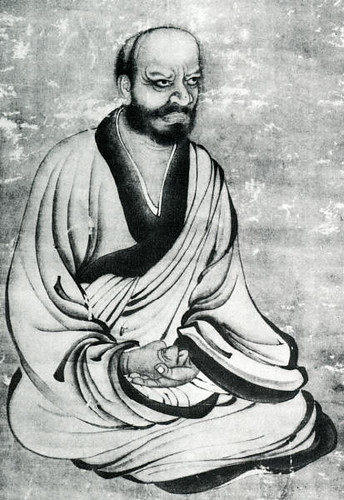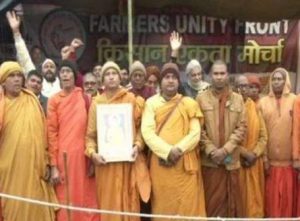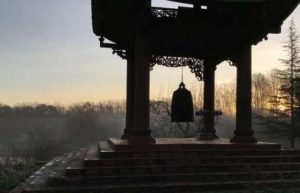It is often said in Chan literature that there are 84,000 doors to the practice and 84,000 obstructions. The door that resonates with my practice are the teachings of Master Lin-Chi. “Teachings” is a misnomer, however, as there is nothing to teach and no one to learn.
The beauty of Master Lin-Chi’s exhortations to practice is that it all points to the intrinsic nature of mind. He is very careful not to reference “our mind” as something separate from the Buddha nature. He constantly knocks down any notions of an ego, a personality, or a life in being. He implores us to abandon notions and conceptualizations. He points to the non-dual intrinsic nature.
He breaks down even those notions that many practitioners believe are the cornerstone of Buddhist doctrine. He states: “So for the past 12 years, though I have looked for it—this thing called karma—I have never found so much as a particle of it the size of a mustard seed.” I often state when lecturing that the Mahayana practice is the compassionate practice of delivering sentient beings of an illusory nature.
Master Lin-Chi makes sure that our Chan practice is not nihilistic. He brings us right to the mind. He inquires: “Do you want to get to know the patriarchs and the Buddhas? They are none other than you, the people standing in front of me listening to this lecture on the Dharma.”
In this manner, he establishes that we should not rely on seeking the mind (“or you will lose it”) nor seeking the way (“and you will lose the way”).

Master Lin-Chi gives a clear description of the functioning of the mind. “Spread it out and it fills the whole Dharma-realm, gather it up and it’s tinier than a thread of hair.It’s lone brightness gleaming forth, it has never lacked anything. The eye does not see it and the ear does not hear it.” Then he cautions again: “Say something about it and you are already off the mark. You will just have to see it for yourselves.”
Master Lin-Chi then explains why students fail to make progress, observing that the fault lies in that the students do not have enough faith in themselves. He further states that if you lack faith in yourself, you will be unable to keep up with changes in the environment; you will be twisted and turned by the environment.
My master, Master Sheng Yen, would say, “We should not be defined by the environment, rather that we should define the environment. One who realizes this, is in control of their own destiny. This should be to fulfill our vows.”
The teachings also keep us mindful of the illusory nature of phenomena, referring to such as flickering lights, and apparent reality as being a dream or a burning house. Master Lin-Chi was not averse to frightening us into practice in this lifetime. “If you do not find it in this life, then for 1,000 kalpas you will be born again and again . . . you’ll be lured off by what you think is a favorable environment only to be born in the belly of a donkey or a cow!”
Master Lin-Chi ends his treatise the same way that he started: “Those who study the Dharma these days should approach it with a true and proper understanding. This is what is known as a Right View.” One of the pre-requisites to Master Sheng Yen in confirming Dharma-heir status to one of his followers was that the follower must have Right View.
What is Right View? It is how the mind works and what it is not. In my lectures, I often ask: if you want to become a computer-repair person, what must you do? First, you must understand how a computer works. What is the main operating system in which all programs function? Our problem is that we believe our thoughts give proof that we exist and all programs (phenomena) run through us (consciousness).
Well, if seen properly, the “self” is a program running in the operating system. It runs in a manner that controls the programs (phenomena) and gives the appearance that it is the main operating program. It is not. What it is, is a virus. The practice of Chan is the anti-viral program. It restores the proper and clear functioning of the main operating system. The Lion’s Roar of Queen Srimala Sutra (Skt: Srimaladevi Siṃhanada Sutra), a Tathatagarbha sutra, identifies the root cause as nascent entrenchment of ignorance; that being a clinging to the notion of the ego.
Indeed, the crux of the practice is to realize how the mind works. The ancient masters have repeated this verse to clarify the practice:
“Sages return consciousness to mind;
Fools turn mind into consciousness.”
When we practice Chan, whether we are sitting to meditate or coursing through our environment, we utilize “awareness of the mind” to function properly. The ancient masters have said that we must turn the mind’s eye inward. By doing so, we utilize the mind’s own awareness to see what is arising moment to moment. As Master Lin-Chi says, “What counts is this present moment.” Master Sheng Yen used to say that the Buddha is in the present moment. Master Lin-Chi says that only delusionary people forget about choices, their minds occupied by purity and impurity.
Moment to moment, we have choices to make about body, speech, and mind. We can continue following habitual tendencies or make wise decisions about what we think, say, and do, based on wisdom.
Wisdom comes to us in the form of pratityasamutpada (Skt. dependent origination, or dependent arising). It stands for: causes and conditions never fail. If we are mindful of this, then we realize that all phenomena are governed by this intrinsic law of the nature of the mind. Using awareness of the mind, all phenomena are seen as arising and the mind no longer takes habitual thinking to be the thought processes of a conscious mind. As the mind clears, phenomena arising are seen for what they are—conditions from earlier causes that will produce their own conditions in accordance with pratityasamutpada.
The clear awareness of the mind produces wisdom, which understands how the mind operates and is mindful of the moment-to-moment choices to be made. When the mind functions perfectly in this way and irrevocably, then transcendent wisdom is generated, accompanied by unbridled compassion. This is the unbridled compassion represented by the bodhisattva Guan Yin. It is a heart of Mahayana practice.
When we sit on a cushion, we apply Right View. We do not try to stop the mind from thinking; that would be unnatural. Images and thoughts arise in the mind naturally, in accordance with causes and conditions. Turning the mind’s eye inward allows thoughts and mental impressions to be observed as arising. We need not banish these thoughts. Rather, when the mind is illuminated, the arising phenomena are seen. Without attaching to thought, the thoughts and mental impressions dissipate of their own accord as no fertile environment is provided for them to continue to stay in the mind. Such phenomena may arise again and again, but with less frequency and force.
As Master Lin-Chi exhorted: one must have faith to sit and use awareness of the mind and not mistake consciousness for the mind. Consciousness is a transient part of the mind and can never serve to “realize” enlightenment. To the contrary, our practice is, from moment-to-moment, to observe the perfection of how the mind functions. And consistent with that, true and proper understanding chose wisdom to govern body, speech, and mind. Apart from this, there is no mind. Many masters have acknowledged pratityasamutpada as mind, and mind is Buddha. Master Sheng Yen would often say that the Buddha is in the present moment.
If we meditate in this manner, with Right View, we will progress quickly. It is as if we have discovered that we were using the wrong end of the hoe to cultivate our field. Once turning the mind’s eye inward and utilizing awareness, the mind will be illuminated. The stillness and the absolute clarity of the mind will be present without obstructions and occlusions arising in the consciousness.
Our daily practice is used in the same way. Being relaxed in body, speech, and mind, seeing all that arises with Right View, causes and conditions never fail. Vows serve as a compass for the mind. Actions through body, speech, and mind carry out and fulfill our vows. In this way, the illusory self is forgotten in the infinite light of the illumination of the mind.
There’s no doubt that this takes practice. Chan is beyond words and phrases. No conceptual thinking can bring about the illumination of the Mind. There is no self to bring to this realization.
In the final words of Master Lin-Chi, “If you approach it with a true and proper understanding, you will not be affected by considerations of birth and death, you will be free to go or stay as you please. You do not have to strive for benefits, benefits will come of themselves.”
I am often asked, “But how will I know when it has come [enlightenment]?” I just say, “You will never know, as you will not be there.”
There is no end to this talk. Each of you, do your best! Thank you for your trouble.
See more
Riverside Chan Meditation Group
Related features from Buddhistdoor Global
Debunking the Myth of Meditation
Teaching Chan in the UK
Continuing the Legacy of Chan Master Sheng Yen
Approaching Chan, Part 1
Approaching Chan, Part 2: The Two Streams of Chan Contemplative Practices
Approaching Chan, Part 3: The Methods of Lingji’s Huatou and Caodong’s Silent Illumination












[…] Lin-chi says, “To practice charity is to give everything away. This means to get rid of perceptions of self, being, life, and soul, sorrow and delusion, possession and renunciation, love and hate. The Buddha teaches us to practice charity, to rid ourselves of all attachments within, and to benefit all beings without. By not dwelling on anything, bodhisattvas do not see the self that gives, nor do they see the other that receives, nor do they see anything given. For all three are essentially empty. By concentrating without concentrating on anything, their practice of charity remains pure. They do not desire what they do not have. Nor do they long for some future reward. When ordinary people practice charity, they hope for some blessing or benefit. This is to practice charity while attached to something.” – Red Pine, Diamond Sutra, Chapter 4 […]